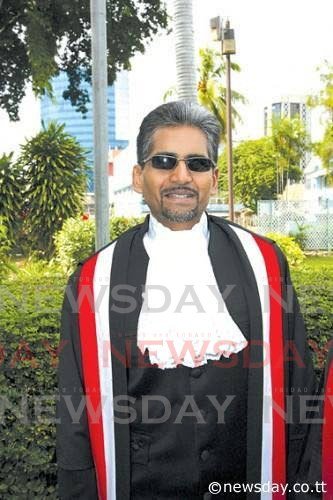Kokaram advocates for peer mediation in schools

Former TT Mediation Board chairman Justice Vasheist Kokaram is advocating for the implementation of peace project schools, with the introduction of peer mediation programmes.
During a virtual graduate seminar presentation on peer mediation hosted by the University of the West Indies, St Augustine on Thursday, he called for the implementation of these programmes at every level of the education system.
“Schools need to look at themselves as hubs for developing and creating that mentality of peaceful dialogue, peaceful resolution of conflict. Implementation would include educating everyone in school on mediation and conflict resolution, establishing mediation units in your schools, to become a hub in your communities, developing work centres for troubled youth, anti-bullying campaigns, artwork museums to be developed for your young people, mediation fairs and the like.”
He said there is space for educating young people about politics and peaceful conflict resolution, with the hope of creating a better future. He asked if there was a case for building a national agenda for peace, in which youth could play a critical role.
Kokaram said mediation is an essential tool for peacemaking and peaceful dialogue in every element of a peaceful society.
“There are three main principles that are applicable to everyday life. These are the three Cs of compassion, collaboration and consensus building, which are the building blocks of a peaceful society, country and region.”
Graduate student Onika Noriega presented on peer pressure and the nature of conflict prevalent among school-aged children. She said there were four main types of conflict: intrapersonal – within an individual; interpersonal – between individuals; intra-group – among individuals within a group or team; inter-group – among different groups or teams. She said examples of conflict include violence, fighting, bullying, indiscipline, drugs and alcohol, stealing, sexual activity and general dangerous behaviour.
Cheri Lewis, in exploring the topic of exploring opportunities for inclusion of peer mediation in the school curriculum, said that conflict was influenced by many factors such as cultural practices, ethnic practices, national origin, and gender, among others. Chryselle Williams looked at the benefits of peer mediation as a conflict resolution in schools, and found that having peer mediation programmes would students develop conflict resolution schools and make schools safer places.
Tristan Diaz, in looking at peer mediation beyond the school system, found that peer mediation had been used in the youth justice and children’s court as an alternative to punishment and sentencing for juveniles, with the exception of assault and other criminal matters.
CEO Community Mediation Division of the Ministry of Community Development, Culture and the Arts, Beverly Harry Emmanuel, said the ministry had previously tried conducting five-day residential camps, which were resource intensive in terms of financial, human, physical and emotional resource. She said there was a lack of sustainability and few opportunities to build linkages in schools.
She said the ministry next tried a school/institution-centred approach in seven phases. She said these were more successful as the schools were involved. She said there needed to be buy-in from all involved, including students, administrators, and staff. She said the education ministry needed to build the initiative into policy. She commended TTUTA for encouraging members to attend training.


Comments
"Kokaram advocates for peer mediation in schools"